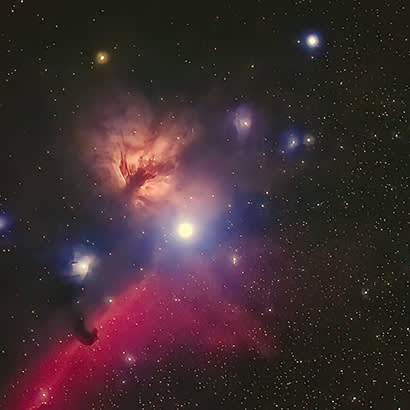
For an enhanced digital experience, read this story in the ezine.
When I was a boy growing up in rural Michigan during the early 1960s, the Milky Way was a prevalent celestial nighttime object that, along with the space race to the moon, ingrained a love of the night sky in me that remains to this day. My dad also figured into the equation. His service in the U.S. Navy offered the opportunity to learn about the stars. After moving back to rural Michigan, we shared many summer nights fending off mosquitos while taking in some of Mother Nature’s best artwork.
I lost my father four years ago, and he became my inspiration for attaining International Dark Sky Park status for Dr. Lawless Park in Cass County, Michigan. Michigan was the first state to recognize the importance of protecting the night sky through the creation of Michigan Dark Sky Preserves, a certification that Dr. Lawless Park also holds.
In contempt of these certifications and my boyhood memories, a problem exists. Where the night skies of the past used to be a playground for stargazers, a new phenomenon has emerged. It’s called light pollution, and it’s time we shed some light — pun intended — on this issue that affects not only our environment, but also our well-being.
Effects of Light Pollution
Light pollution occurs when excessive or misdirected artificial lighting obscures the darkness of the night sky. Instead of enjoying a sky full of stars, our cities, towns and rural areas are illuminated by a blanket of bright lights that never seem to dim.
Light pollution disrupts the natural cycles of many living organisms. Nocturnal animals, like owls, bats and fireflies, depend on the cover of darkness to hunt, mate and navigate their surroundings. When their habitat is flooded with artificial light, it throws off their internal clocks and disturbs their natural behavior. This disruption can have severe implications for their survival and the delicate balance of ecosystems.
Light pollution also poses a threat to the health of trees, which reduce our carbon footprint through the process of photosynthesis. By exchanging carbon dioxide for oxygen, they act as natural carbon sinks, helping to mitigate the effects of climate change. But when trees are exposed to excessive artificial light at night, their internal clocks can be tricked into delaying dormancy in the fall and waking too soon come spring — all of which can expose a tree to disease and possible death.
Furthermore, excessive light also can disrupt the pollination process for flora that rely on nocturnal pollinators, such as moths and bats. These creatures are drawn to flowers by their fragrance and rely on the darkness of the night to navigate. When their habitat is flooded with artificial light, it disrupts their foraging patterns and hampers the pollination process, affecting the reproduction and genetic diversity of trees.
Solutions
By addressing light pollution through intelligent outdoor lighting practices, we can protect the health of trees and support their vital role in combating climate change. Employing fully shielded lighting, using warm-colored lights with a color temperature of 2700 Kelvin or less, and implementing motion sensors and timers can minimize the negative impact on trees and promote their well-being.
Light pollution is a pressing issue that affects our environment, human health and the delicate balance of ecosystems. Luckily, a solution could be as easy as turning off unnecessary lights. As for lighting that is deemed necessary, actively embracing intelligent outdoor lighting practices can save energy, protect our planet and create spaces that foster both human and ecological well-being.
For additional information on light pollution, please visit Dark Sky International at darksky.org.
Robert Parrish, M.A., is President of Cass County (Michigan) Parks and Recreation.

